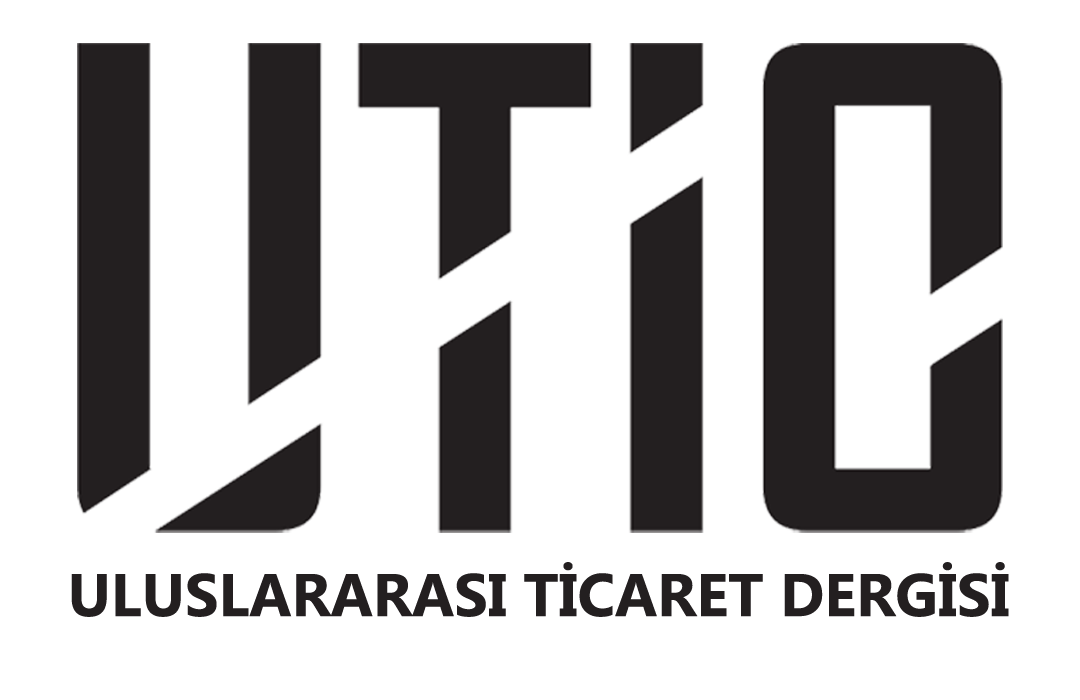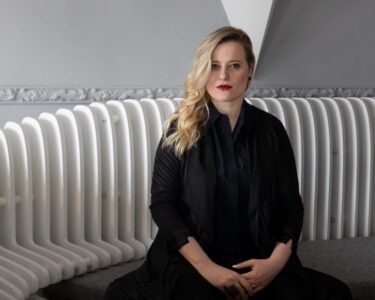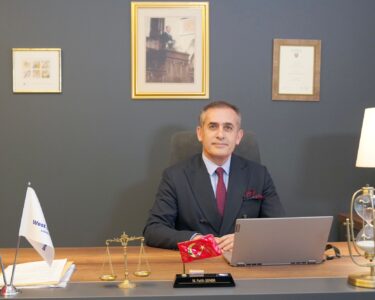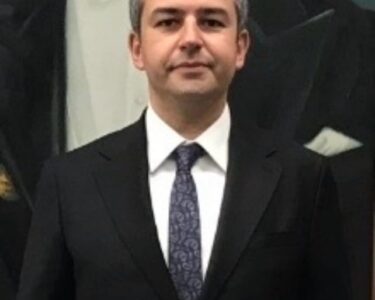You began your academic journey at the University of Tilburg, studying Traffic management, but found your passion in Geographic Information Sciences at Rijksuniversiteit Groningen. You have worked for 11 years on renewable energy solutions such as biogas, solar and geothermal energy. Additionally, you have 23 years of experience in database design and integrating business systems with geographic information systems. You have carried out a wide range of international IT projects, including outsourcing and management of healthcare and infrastructure projects. Can you share the experiences and challenges you encountered throughout this comprehensive career journey? Also, how have these various roles contributed to your personal and professional development?
(Getting the award for best inovative solution in 2002)
Back in 1998 the Dutch national phone company KPN wanted to have a system on top of the new GPRS data transmission for mobile phones that could guide sales people and mechanics with actual customer information stored in the companies CRM or database system. So I told them to use a map view additional to that to make it even more interesting and faster. With a team of top developers we created a prototype in three months time that amazed the world and got me an award in Los Angelos for best new development in 2001. This was implemented in smartphones later on. So that was one of the first things that was very challenging, and later on, I also worked on the patented development of an Environmental Protection program warning for possible hazardous waste leakages in water or the ground, or emissions in the air. In both cases, as with the other previous projects as well, I worked with a big team of people from the best developers all around the world. The last team I worked with was in India for 2 1/2 years. It helped prevent chemical leakages and environmental disasters. It helped me respect the incredible knowledge available everywhere in the world. All kinds of people I worked with had different backgrounds. They were Black, White, or whatever, and they had different cultural backgrounds and beliefs, but it didn’t matter. They were very good at their jobs, and they gave their best and many remain my friends up to today. It was really exciting to work with a lot of young people who grew in their job and got better and better. That was the most beautiful thing to do in this kind of work.

I would like to add something. You said they were beautiful people, but did you encounter anyone you couldn’t deal with or didn’t know how to deal with you being a foreigner to them? Also working in the technology era or data era at that time was really difficult because you didn’t have a lot of things like the internet. So, how did you manage these?
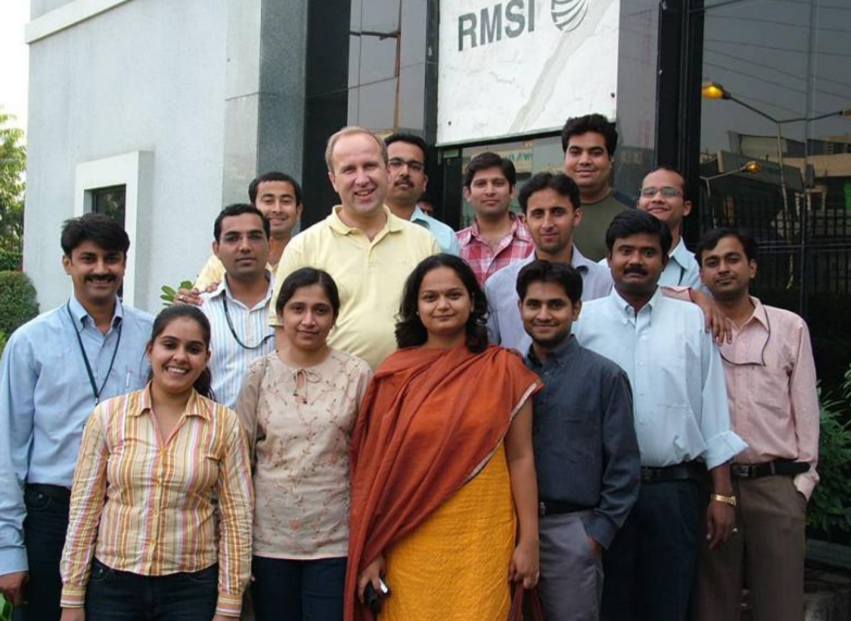
(Working with the team in India in 2006)
Yes. That are good questions. For example, when I started in India, the team looked at me as a stranger coming from Europe. They were not really into it, but I talked to them and made them my family, telling them about my own life, what I was doing, and what my family was doing. Very quickly, they accepted that. Also, the challenge of changing something that was beneficial for the world united the team. Of course, there are always some people who need more attention and some who take the attention, but in general, it’s a team effort, and that works very well. If you focus on the goal, any problem can be solved. I’ve seen that. Just take the time to talk openly and be straightforward with your team. At the start of my career there was no internet available, so I had to use the resources that were available like a floppy disk network to carry data from one to the other. Later on peer-to-peer connections were used. But the late eighties brought us the internet and I was eager to develop solutions using that platform.
As the Operational Director at EES Holland B.V., you managed the company’s restructuring process and achieved ISO Certification. You realized Turkey’s largest biogas plant at EES Engineering Ltd. Sti., and as the General Manager at Geodan Van den Berg B.V., you increased the company’s profitability. You have also taken significant roles as a Geo-IT Unit Manager and IT Team Leader. People who work with you describe you as a strategist and admire your leadership. What do you think is the most crucial reason behind your success?
Being a human being who is interested in the people you work with. Never give up. Keep going. Don’t stop. I also tell my children, “Don’t stop.” Whatever you start, it’s not always going to be easy. There will be problems along the way. Keep your eye on the goal and go for it. Any problem that comes up, you can solve it. Take your time and motivate your team. As I mentioned before, with other projects, they will also get motivated when they see your genuine interest in them. It’s important to show interest in them as human beings, how they are doing, and talk about their family life. Be interested in them as people. That’s what it’s all about. Be human.
I wanted to ask something. Do you think the way you lead and work with people will still be effective with the newer generations or those who are coming up in the industry? Do you think your approach to motivating people will work on us? Well, nowadays everyone seems to be more self-centered. Do you think your leadership style will still be effective?
Yes, of course. I work with younger people as well. There’s a change in attitude, also in how people respond to you and the lack of verbal communication skills. Especially since the 2000s, together with the rise of new technologies, people have become more relying on technology I contributed to myself. But that’s the way it is now. We have to recognize that young people are not used to working with their brains as much as before. There are so many tools that help them do their jobs. Computers can help, but we’re getting a bit lazy. That’s a big problem I see for the future. If people’s minds stop working as they should because we rely too much on computers, that could be an issue. We don’t want to think too much or remember too much. On the other hand, we are bombarded with information every day. The question is, what do we really need from all of that? I don’t know the answer to that, and I’m not sure how things will develop in the future. But for you personally, I would say to emphasize the social aspects of leadership. Keep that strong, and it will help people. I’ve seen young people come to my company in the last few years in Holland. They start by asking, “What should I do?” But when they realize they can achieve something special, they go for it. Even if they’re not used to it, they still pursue it because they believe in it. And if you can inspire that belief in a person, then you’re truly a good leader.
You have 35 years of experience with the Turkish business language and culture. You continue to serve as a board member at the Netherlands Turkish Trade Foundation. You make valuable contributions to collaborations between the two countries in networking and consultancy. Can you share your commercial and cultural observations about the Netherlands-Turkey relations from your first contacts to the present day?
(Listening to Professor Dr. Saylan at my lefthand. Back in 1988)
My first business contacts were when I was working in developing countries, specifically in the field of hospital design and management. During that time, I was involved in projects in Turkey, working alongside the renowned Professor Dr. Türkan Saylan for six years. We collaborated on various projects, and I found it wonderful to work with her and the dedicated people in Turkey. Professor Dr. Saylan was a very straightforward person; she knew what she wanted and always achieved her goals. I learned a lot from her. Unfortunately, she passed away years ago, but she remains an example for many people, especially female students in Turkey, whom she supported financially to do be able to study at the university. She didn’t just focus on eradicating leprosy in Turkey, which she succeeded in, but also extended her efforts to other countries. We worked together on projects in India, Pakistan, Surinam, Ethiopia, and even in Brazil.
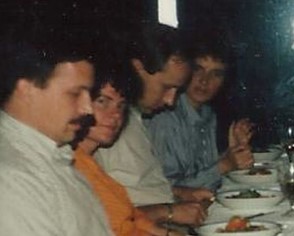
That experience marked the beginning of my interactions with Turkish people, and it was always a pleasure. In Turkey, people are very hardworking, and there isn’t a strict nine-to-five mentality as you might find in Europe. Turkish people are always ready to work, regardless of the time. When we compare the Netherlands and Turkey, it’s clear that they have been working together commercially for over 400 years. This long history shows how well they can collaborate. Turkish people are energetic and determined, while the Dutch are known for their organizational skills. Combining these qualities has led to very successful collaborations.
For example, in a project in Turkey where a factory wanted to establish an energy plant, Turkish, German, and Dutch people worked together. Dutch companies tend to be more flexible than German companies, which can be more rigid in their approach. The German attitude is often, “This is how we want it, and we don’t care what you want,” whereas Turkish people are more adaptive, willing to adjust to the situation. I’ve seen this dynamic firsthand, as I often had to mediate between the German and Turkish teams. I would explain the situation to both sides separately, and we would find a solution together. This ability to be a middleman is something Dutch companies excel at, which helps them in trading and in managing complex international projects.
In the future, Turkish people need to continue to work on being more decisive in business. Many people who have worked abroad in countries like Germany or the Netherlands return to Turkey with valuable knowledge. These individuals can help Turkey do business in the right way and strengthen the country’s position in international markets.
You mentioned that one of your goals is to make the local company you currently lead the best and most reliable in the market. Soon, we will introduce a game-changing safety and security system that will save many lives for buildings, mines, airports, stations, sports fields, and hospitals worldwide. What can you share with us about this safety and security system you mentioned?
When it comes to security, it’s something we typically don’t discuss openly, but I’m happy to share a bit about our vision. This system is still in development and is part of a dream I’ve been pursuing for the last five years. I’ve planned out all the different components that need to be part of this total solution, collaborating with specialists worldwide, many of whom are close colleagues. We’ve already discussed this with major companies in Turkey, and they are very enthusiastic about it. We hope to start the first projects by the end of this year.
This system could be described as “Smart Building 3.0.” It’s designed to protect and prevent disasters before they happen. These dangers could range from terrorism to natural disasters like earthquakes and floods. The system works by using the latest technologies like Artificial Intelligence and Machine Learning combined with location based services not only to understand human behavior but also to monitor the Earth’s behavior—what causes these earthquakes, what leads to flooding, and how we can anticipate them before they occur.
This sounds like something that Turkish companies could really benefit from, especially given the frequent earthquakes in Turkey. Many of us live in constant fear of what might happen next. This system seems like it could be incredibly valuable for the Turkish people and companies.
Absolutely. Last year, in April and May, we spent 20 days training the senior management of large companies on how to handle these kinds of threats. We worked with experts from all over the world, including the former Director of the California Governor’s Office of Emergency Services and with staff of the National Fire Protection Association (NFPA), tsunami experts from Japan, and flooding experts from Denmark and Holland (Delft University). We brought together the best minds to give a preview of what can be done with current technologies. We’ve already made significant progress, and by working closely with these world-class experts, we’re able to offer real solutions.
My approach has always been to start with the best in the market and bring them together, rather than trying to reinvent the wheel. These experts are genuinely interested in saving lives, and while they, of course, require compensation, they are primarily motivated by the goal of working together to save lives. It’s encouraging to see so many people willing to collaborate on this important work.
It’s definitely reassuring to know that such advanced safety measures are being developed. Feeling safe is something every human strives for, and this system could make a significant difference not just in Turkey but worldwide.
On May 8, 2024, the event “Green Deal and Turkey’s Adaptation” was held, hosted by the International Trade and Logistics Department and the Contribution to Society and Sustainability Coordination of Sakarya University, in partnership with the Association of Tax Inspectors and the International Trade Network Association. Can we hear your thoughts on this event and the Green Deal, which you attended with the Netherlands Turkish Trade Foundation?
It was great to see the depth of knowledge that was available. The level of detail in the discussions was impressive. Last week, I had a delegation from Turkey, including 20 people from the Chamber of Commerce from Manisa and the municipality, as well as people from their twin city, Valencia. They were also keen to learn more about the Green Deal. This is clearly an important topic, as highlighted at the event on May 8th. It’s evident that something needs to be done. However, I noticed the absence of companies at the event, which may not have been the event’s goal, but it’s an important next step to consider. I discussed this with your colleagues at the event, and we agreed that action is needed. For example, in Manisa, they plan to work with the local university to make companies in the area aware of what needs to be done. Because they are exemplary in showing how things have to be done according to the law and environmental regulations. While this is a big help, many small companies may struggle to comply with the Green Deal due to the costs involved in adjusting their production processes to meet the requirements.
Will there be any assistance for countries that are struggling with the Green Deal?
I can’t say for sure at this moment. In Holland, for example, there are support programs from the government for local authorities, but there’s still a lack of awareness and urgency. Even though there is financial support available, many municipalities haven’t utilized it, perhaps because they think they have more time until the 2030 or 2050 deadlines. This lack of action is disappointing. It’s possible that support could be extended to other countries outside the European Union, but I’m not certain about that. However, it would make sense, considering this is a global issue that requires a global response.
Yes, every country needs to contribute to this effort.
The biggest challenge isn’t just financial; it’s also about changing the mindset of people. Some think they have plenty of time before these issues become critical, but the reality is that time is slipping away quickly. It’s crucial to educate the younger generation about this so that they understand the urgency and are prepared to change their lifestyle in the future that is needed to sustain life on earth.
That’s why it’s important to educate us about these issues, so we are aware and ready to act.
Absolutely. Education is key, and that’s why organizations like municipalities and chambers of commerce should work closely with universities to ensure that companies are informed and prepared. The knowledge students gain in these programs is incredibly valuable for Turkey.
I hope to do the same in my country, and I’m working towards that goal.
That’s wonderful to hear. Good luck with your efforts.
Can you talk about the advantages for companies looking to invest from Turkey to the Netherlands? For example, besides the strong infrastructure with 5 seaports (major ones being Rotterdam and Amsterdam) and 6 international airports (major ones being Amsterdam, Rotterdam, and Eindhoven) or the ease of setting up a private limited company with a capital of 1 Euro, what other advantages can you mention?
Yes, currently, we are working with a few companies that I am assisting in establishing their businesses in the Netherlands. I am involved in drafting and reviewing their business plans, and they view the Netherlands as a gateway to Europe. This is aligned with what you’ve already mentioned—the seaports and airports—but it’s also important to highlight that the Netherlands serves as a stepping stone. Many international companies have their offices in the Netherlands, which provides opportunities to collaborate and network with them.
However, one of the challenges we face is the aging population. Unlike Turkey, where there is a large and young workforce, over 50% of the population in the Netherlands is older than 50 years. This could be seen as a disadvantage in some respects but offers opportunities for Turkish experts looking forward to work in Europe.
On a more positive note, the ease of investment and company formation in the Netherlands is a significant advantage. The time difference between Turkey and the Netherlands is also minimal, which facilitates communication and business operations.
As for young people, many have aspirations of moving to America, influenced by the portrayal of the U.S. as a land of opportunity on television. However, from what I know and from the experiences of those who have been there, it’s not as ideal as it might seem. The reality is often more challenging and less glamorous than what is shown on TV.
How do economic crises, instability, and the current monetary tightening policy in Turkey create an impression for foreign investors about the Turkish market? How do these details affect your processes while contributing to Dutch-Turkish business collaborations?
The situation goes both ways. There are companies that have been working with Turkey for a long time, and they’re not likely to stop their operations easily. Thousands of companies are involved in the Turkish market, so despite the challenges, many will continue until it’s truly not feasible. However, the investment climate isn’t as favorable as it was before 2015.
Until then, Turkey was still seen as a good place to invest, but since then, the situation has gradually worsened. I hope that things will improve so that the investment climate becomes more favorable again. We’re seeing some stabilization in the currency, but there are concerns that the Turkish lira may devalue significantly, possibly reaching 70 lira per euro soon. This is a significant concern for investors, as they naturally prefer a stable currency environment.
The fluctuations in the Turkish lira make exporting difficult and expensive, complicating business operations. When the currency exchange rate is highly volatile, it has a direct impact on the funds invested. You might convert your currency to the local one, only to see its value diminish quickly.
Yes, the yearly fluctuations in the Turkish currency are a challenge. We hope that future collaborations won’t have to deal with this issue, but I believe the Turkish President is working on this for both our benefit.
The President is knowledgeable in economics; otherwise, the situation could have been worse for Turkey. I think he will do his best, even though we may not know exactly how he plans to address the issues.
Yes, it’s important to work together with institutions like the IMF and follow their rules. That’s probably the most viable way forward.
Today, the inability of commercial ships to reach the Suez Canal in the Red Sea and the need to follow a long travel route around the Cape of Good Hope have led European countries to turn their eyes from the Far East to closer regions. How much do you think this situation will increase Turkey’s commercial activities within EU countries? How do you think Europe evaluates Turkey in terms of investment in the short and long term in this context?
This situation has had a positive effect on the Turkish economy. The European Council is increasingly viewing Turkey as an alternative to China and other countries in the Far East, particularly due to the high costs associated with transport from those regions. As a result, certain products, like steel, have become more attractive to purchase from Turkey. We’re seeing that Turkish steel companies are making efforts to take over jobs that were previously handled by Chinese companies.
There are specific markets where Turkey could gain a significant advantage. For instance, the steel industry is one area of interest, and Turkey’s machinery sector is also highly developed, producing high-quality machines. Additionally, the agricultural sector in Turkey remains robust, presenting another promising area for trade with Western Europe.
While it’s difficult to predict how long this favorable position will last, there is certainly an opportunity for profitability if Turkey can capitalize on these trends. In the long term, if Turkey continues to perform well, it could establish a larger footprint in Europe like it already has with the Netherlands.
Indeed, Turkey is working hard to build trust and is becoming more decisive in its approach, which is crucial for strengthening these business relationships.
Due to the climate crisis and the green deal, trade with the EU is becoming more challenging, and companies are turning to the US for the ease of processes. Strict controls in the supply chain or carbon emission inspections also pose a challenge for Turkey. What are your thoughts on this issue in the short and long term?
Yes, we’ve discussed this before. While large companies are already adapting to these rules, small companies will face significant challenges. Turning to the US may seem like a short-term solution, but it won’t necessarily be effective in the long run due to similar regulations. The issue of carbon footprints is an international problem, and eventually, companies will have to comply with these standards.
It’s not a situation that will last indefinitely. I believe Turkey will continue to focus on Europe and build closer relationships with the EU, meaning Turkey will need to take steps towards aligning with the Green Deal.
I was saying that it might be easier for European countries to comply with the Green Deal since they are already more developed. It could be much harder for less developed regions to reach that level.
That’s not entirely true. Even in Europe, not all companies are fully compliant with the new regulations, so there’s still a lot of work to be done. Turkey is not alone in facing these challenges. For example, we recently had a visit from Valencia, and they expressed similar concerns. It’s not just Turkey.
So perhaps the first step should be educating the next generation about the Green Deal and environmental issues. Then we can proceed with implementing these changes.
Absolutely. Recently, the Chamber of Commerce of Manisa started focusing on educating students aged 14 to 18 about environmental issues. This was something missing in Turkey for a long time. I’m glad to see this focus because these young people will become the future leaders of companies. If they grow up with an environmental mindset, it will be crucial for the future.
Educating them now is essential because there hasn’t been much emphasis on environmental protection in Turkey. For example, plastic bags are still commonly used, and waste is often disposed of improperly. In contrast, in Holland, there has always been a strong emphasis on waste management and environmental care. It’s something ingrained from a young age. I have faith in the future with people like yourself who are caring about human relations and the sustainability of the earth.

With over 35 years of professional experience, he possesses deep expertise in renewable energy, database design, and international IT projects. He has worked for 12 years in renewable energy solutions, including biogas, solar, and geothermal energy. Additionally, he has 23 years of experience in integrating business systems with geographical systems and mapping services.
He has 35 years of experience in establishing business relations with Turkey and is well-versed in Turkish business, language, and culture. With 20 years of program and project management experience, he has successfully managed projects with budgets of €5 million and above. He is also skilled in patenting new products, implementing ISO standards, and improving business processes.
He has played key roles in international healthcare projects and underground infrastructure projects. He successfully managed adherence to standards across six EU countries. Currently, his goal is to make the company he leads the most reliable in the market and to introduce a groundbreaking safety system that will save many lives.
